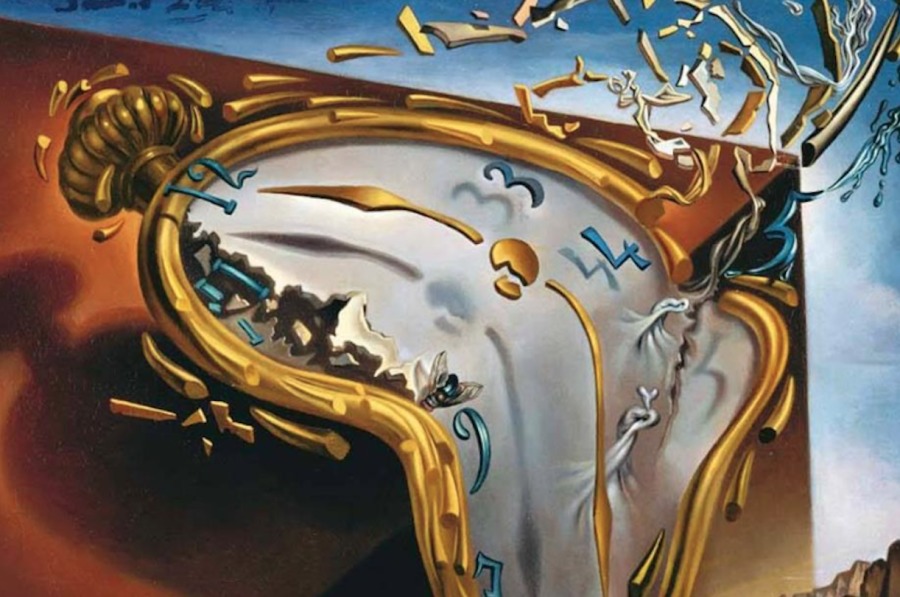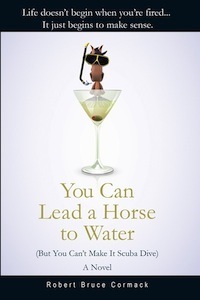When Ideas Bark In the Night.

“Open the door and let ’em in” Paul McCartney
He awoke from a dream in a room at the Gulf Motel in Clearwater, Florida, a riff going through his head. It was just eight notes, nothing special. Years later, he’d call it “basic as the hills,” but he recorded it on a cassette recorder that night and went back to sleep. In the morning he listened to it again. Near the end, he heard his voice mumbling “I can’t get no satisfaction.”
Dreams are interesting things in the right hands. They’re what neuroscientist, Christof Koch, refers to in his article “Dream States: A Peek into Consciousness,” as “hallucinations with a narrative structure.”
Jane Asher thought the lyrics were bunk, “I’ve got horrid legs,” she said.
In this narrative structure, we’re not passive observers. We speak fight, love and sometimes write a number one hit song. According to Koch, this occurs because we don’t introspect in our dreams. “There’s no control,” he wrote. “We go along for the ride.” Richards obviously went along for the ride.
While living in the top garret of his girlfriend’s (Jane Asher) parents’ house, Paul McCartney woke up in the middle of the night and wrote “Yesterday.” Actually, it was just the melody. He called it “Scrambled Eggs,” with some cheesy lyrics that went, “Scrambled eggs, oh, my baby, how I love your legs.”Jane Asher thought the lyrics were bunk, “I’ve got horrid legs,” she said.
The song sat around for a couple of months. He played it for the other Beatles. They liked the melody, but not the title or the lyrics. He played it for friends and other musicians. They felt the same way. Then, one morning, McCartney woke up and the song and title were both there. “It came too easy,” McCartney admitted. “I thought maybe I’d heard it somewhere before.”
Trouble is, dreams are also ephemeral. They come and go, sometimes flitting, sometimes too exotic or weird to forget.
He probably had heard it somewhere before. Dream states can reoccur, picking up where they left off, or emerging in a different form. A word, a phrase, a few musical notes can come back, developing in our subconscious.
McCartney may have been having “reoccurrences” for months until, one morning, everything came together. That can happen, too, according to Christof Koch. Trouble is, dreams are also ephemeral. They come and go, sometimes flitting, sometimes too exotic or weird to forget.
This may be what Sigmund Freud meant when he said that dreams serve as “wish fulfillment.” It’s what’s known as “heightened emotionality,” meaning we experience intense feelings of sadness, fear, anxiety or joy. What we remember is usually what we want to remember.
That’s not to say this “wish fulfillment” gives artists everything. Richards didn’t think much of “Satisfaction” at first. Mick Jagger had to take the idea away and write the lyrics while Richards fiddled with his new fuzz peddle. He later admitted it was pretty “gimmicky.”
What passes as weird or totally bonkers for most of us, inspires geniuses. They work it out, ponder, never letting it go.
McCartney toyed with “Yesterday” every chance he got. On the set of “Help!” he played it so much, Richard Lester, the director, threatened to take the piano off the set. “Either finish that song or give it up,” he told McCartney. Good thing McCartney didn’t give it up. “Yesterday” went on to be the most recorded song of all time.
Which begs the next question. Why do dreams produce hit songs for some and not for others? We all dream. Shouldn’t we all be writing number one hits? Again, it goes back to Freud’s notion of “wish fulfillment.” What passes as weird or totally bonkers for most of us, inspires geniuses. They work it out, ponder, never letting it go.
Imagine if Richards hadn’t recorded that first riff for “Satisfaction,” or McCartney hadn’t gone immediately to his piano. Most of us would have fallen back to sleep. That could be the difference right there. We go back to sleep while geniuses stay awake. Einstein slept with a pen and paper next to his bed. He was always dreaming notions — including The Theory of Relativity.
Let’s not forget, McCartney also wrote “Why Don’t We Do It In the Road?”
One poet called it “When ideas come barking in the night.” We all hear the barking. Artists tend to hear something beyond that. Salvador Dali claimed many of his works came from his dreams. Mozart dreamt in full symphonies.
For most of us, though, dreams remain too ethereal to harness. Even when we’re “going along for the ride,” we don’t take them seriously. “I’ll wake up in the morning and realize I wrote gibberish,” people often say — and they’re probably right. Guess what? Geniuses write gibberish, too. Let’s not forget, McCartney also wrote “Why Don’t We Do It In the Road?”
Here’s the thing about dreams. If you have ordinary thoughts going to bed, it’s doubtful you’ll wake up with the next “Yesterday.” Dreams don’t add to your imagination. They can only reflect what’s there already.
In other words, it’s one thing to “go along for the ride,” it’s another to produce. Stephen King’s “Dreamcatcher,” for instance, came about after a near fatal car accident. He told Rolling Stone later, the book was greatly influenced by dreams and Oxycontin.
Or maybe ideas just bark louder for geniuses.
Stephanie Meyer’s “Twilight” began with a dream where she saw a couple meeting in a circular meadow. “It really captured my imagination,” Meyers said. “The dream became Chapter 13 of the book.”
I’m sure King and Meyers have woken up to pads of gibberish. Perhaps one man’s gibberish is another’s “Yesterday.” Or maybe ideas just bark louder for geniuses.
William Blake harnessed hundreds of dreams, two of which were named “Dream Poem” and “The Land of Dreams.” Both have an ethereal quality, like he was trying to duplicate the dream state. He also used copious amounts of the nineteenth century’s Oxycontin, which was laudanum.
Can we all harness dreams more effectively? Quite possibly. As McCartney suggests in another song, when ideas bark in the night, “Open the door and let ’em in.”
Robert Cormack is a freelance copywriter, novelist and blogger. His first novel “You Can Lead a Horse to Water (But You Can’t Make It Scuba Dive)” is available online and at most major bookstores. Check out Yucca Publishing or Skyhorse Press for more details.

""
Articles from Robert Cormack
View blog
A short story about winning, losing and small engine repair. · “A man is not finished when he’s defe ...

It could be worse than losing. · “We are what we pretend to be, so we must be careful what we preten ...

Has the world gone crazy, or are we having daddy issues? · “The end move in politics is always to pi ...
Related professionals
You may be interested in these jobs
-

Trainer
Found in: Talent CA C2 - 4 days ago
Beneva Longueuil, Canada Temps pleinTitre d'emploi: · Formateur - Gestion d'invaliditéStatut: · RégulierSommaire: · À titre de formateur(-trice) en gestion d'invalidité, vous encadrerez les activités d'apprentissage pour l'intégration des nouveaux employés et leur montée en compétences. Vous travaillerez en collabo ...
-
Technologist, Informatics
Found in: Talent CA C2 - 5 days ago
Conestoga College Kitchener, CanadaRequisition Details · Support Staff Full-time Replacement Appendix D Contract Position (May 15, 2024 – December 15, 2024) · We require a qualified individual to act as the senior technical resource for the Bachelor of Applied Health Information Science Program and support educa ...
-
Grocery Assistant Manager
Found in: Talent CA C2 - 18 hours ago
Sobeys Capital, CanadaRequisition ID: 181525 · Career Group: Store Careers · Job Category: Retail - Grocery · Travel Requirements: 0 - 10% · Job Type: Full-Time · Country: Canada (CA) · Province: British Columbia · City: Saltspring Island · Location: 9459 Saltspring Island Thrifty · Postal Code: ...


Comments
Robert Cormack
6 years ago #2
Kevin Pashuk
6 years ago #1